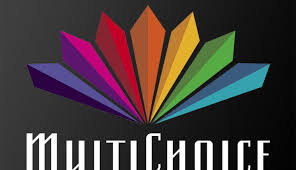Dstv: You Want Pay-Per-View in Nigeria? Better Call Your Village People First

It’s 8:30 p.m. on a Saturday. You’ve battled Lagos traffic, overspent on suya that burns more than it satisfies, and finally settled in for the Champions League final. But in Nigeria, nothing comes easy—especially not watching football.
First, there’s PHCN. Whether you’re on Band A or B, you’re gambling on electricity staying till the final whistle. It rarely does. Next, your trusty generator. With fuel pushing ₦900 to ₦1,000 per litre, running it for a full match could cost over ₦10,000.
Then there’s online streaming. Between pricey data and erratic internet, you might drop ₦5,000 just to see your stream freeze the moment Lamine Yamal takes a shot. And that’s before factoring in the actual pay-per-view (PPV) cost—if that were even a thing here.
Here’s what many still don’t understand: PPV is not just a fancy subscription. It’s a separate, one-time payment for access to premium, exclusive events—like blockbuster boxing matches or headline UFC fights. You pay once. You watch once. End of story. It’s not Netflix. It’s not YouTube. It’s definitely not DStv Catch Up.
And here’s the kicker: platforms like DStv don’t even offer PPV. That Champions League final or UFC title bout? It’s part of your monthly bouquet. No add-ons. No hidden charges. Just your regular subscription, a stable satellite signal, and whatever source of power you can muster.
So when people cry, “Why can’t we have PPV like abroad?”, they miss the bigger picture. In the U.S., a PPV event can cost $80—that’s over ₦130,000. In Nigeria, that’s two to three months of DStv Premium or nearly a year of GOtv. On a ₦77,000 minimum wage, that’s not entertainment—it’s financial suicide.
Let’s be honest: most Nigerians aren’t paying for PPV, because they don’t have to. And more importantly, they can’t. Broadcasters have already bundled elite sports into standard subscriptions. That’s not a scam—it’s a lifesaver.
So before you start tweeting about how we “deserve proper PPV like the UK,” pause and do the math. In London, $80 might be lunch money. In Lagos, it’s rent, food, and school fees rolled into one. Systems differ. Wallets do too.
The real issue isn’t access—it’s affordability. The naira is tanking, inflation is raging, and incomes are stagnant. That’s the problem. Not DStv. Not Showmax. Not the lack of a PPV button on your remote.
Next time you’re tempted to demand “true” PPV, ask yourself: Can I really afford to blow ₦100,000 for one night of football without skipping meals for a week?
If the answer is no, plug in your rechargeable fan, renew your subscription, and pray for NEPA. Because in Nigeria, PPV isn’t a right—it’s a reckless indulgence.
2 thoughts on “Dstv: You Want Pay-Per-View in Nigeria? Better Call Your Village People First”
Comments are closed.



Awesome https://is.gd/N1ikS2
Good https://is.gd/N1ikS2